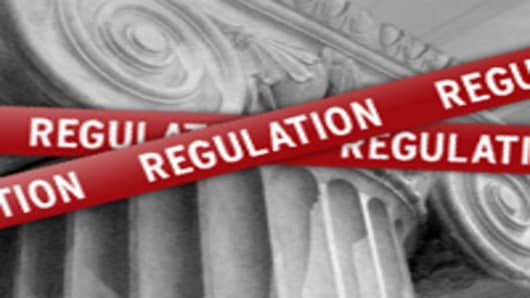The Dodd-Frank financial reforms were supposed to end bailouts by creating a government authority to "resolve" systemically important financial institutions. But, as I explained yesterday, there are good reasons to doubt the so-called Resolution Authority can be effectively implemented for the biggest complex financial institutions.
The stunning drop in the share price of some of our financial behemoths—including Bank of America and Citigroup—earlier this week raised the question of how and what it would take to get the Resolution Authority invoked for a major financial institution. Could this be an authority that can never be invoked?
It’s almost a philosophical question: If an authority can never be invoked, does it really exist?
Dodd-Frank provides very little guidance for when regulators should begin the Resolution process. In the FDIC’s case study of how Lehman Brothers might have been treated if Resolution Authority existed in 2008, the FDIC assumes that it would have sprung into action following the failure of Bear Stearns. But this is too easy: the “triggering” event was the failure of Bear.
The real question should be whether or not the FDIC could have applied Resolution Authority to Bear. Can the FDIC act pre-emptively, before the first bailout? Or does it require a sudden, dramatic event like the failure of Bear Stearns to trigger the application of Resolution Authority?
The Lehman Brothers case study goes on to assume the senior management of Lehman would not have resisted attempts to put a resolution plan in place. But this strikes me as pure fantasy. Senior management of Lehman were in deep, deep denial about the financial condition and prospects of their firm. They never believed—right up until the very end—they would fail.
A crucial part of the FDIC assumption of cooperation by Lehman is the idea the senior management would understand that because Resolution Authority is available, there would be no hope of a bailout. Again, this strikes me as fantasy, wishful thinking. Market actors have serious doubts about the effectiveness of Resolution Authority. The senior management of giant banks no doubt still believe they can call upon the government to rescue them.
The FDIC imagines that Resolution Authority would operate much like an ordinary FDIC resolution of a standard depository bank. These begin months ahead of time. So ask yourself: if one of our biggest financial firms was going to fail, would we know this months ahead of time?
Remember that Lehman’s stock rallied in the spring of 2008 on strong demand for a secondary share offering.
Those who believe Resolution Authority can be effectively exercised need to explain what it would take for regulators to become convinced they needed to take action with respect to a company like Bank of America, Citigroup or Morgan Stanley .
__________________________________________
Questions? Comments? Email us atNetNet@cnbc.com
Follow John on Twitter @ twitter.com/Carney
Follow NetNet on Twitter @ twitter.com/CNBCnetnet
Facebook us @ www.facebook.com/NetNetCNBC



